
Page 4
NANDA-JATAKA
How a slave was made to tell where his master's father had buried his
hoard.
Pictured by : PongPang
Coloured by : Pupay

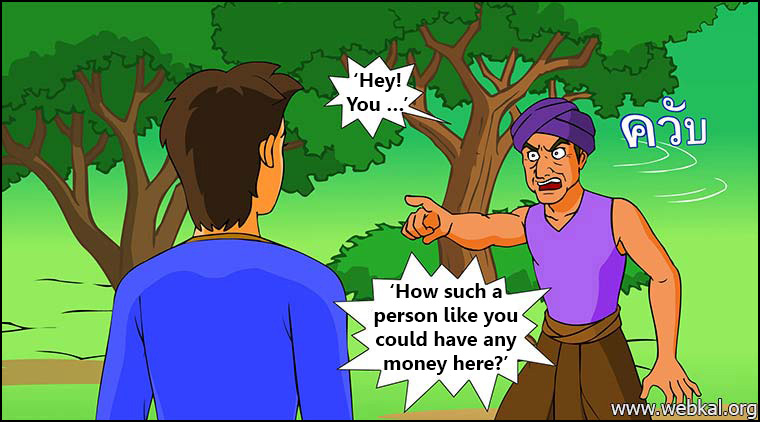

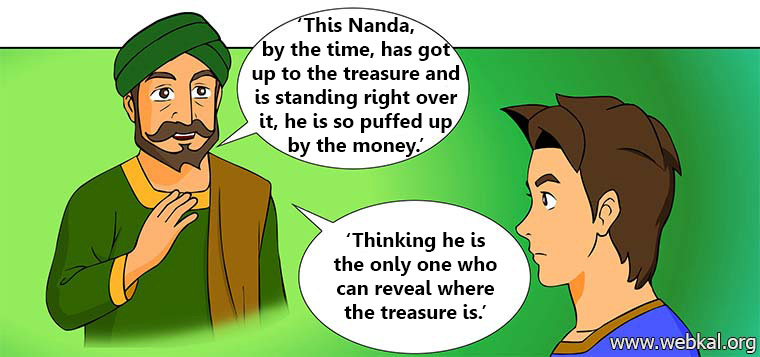

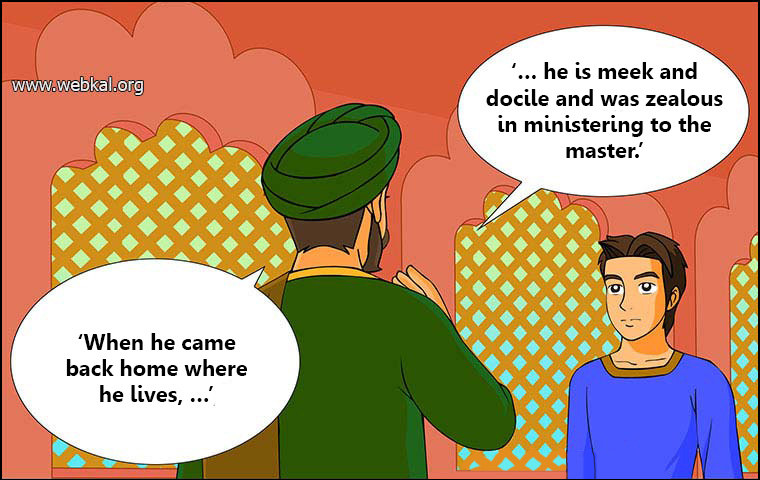
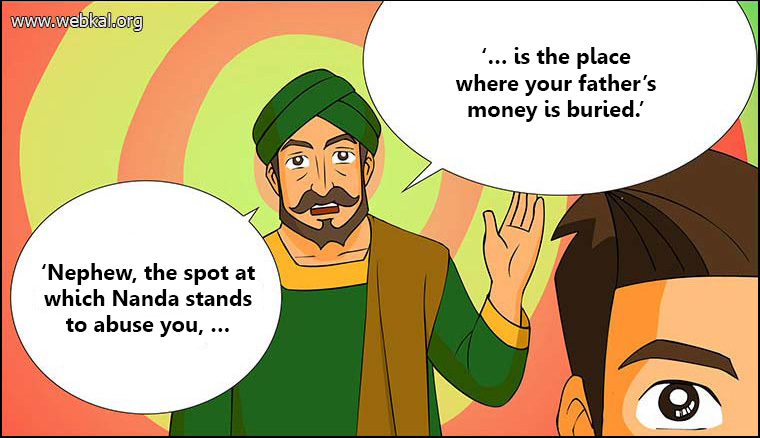

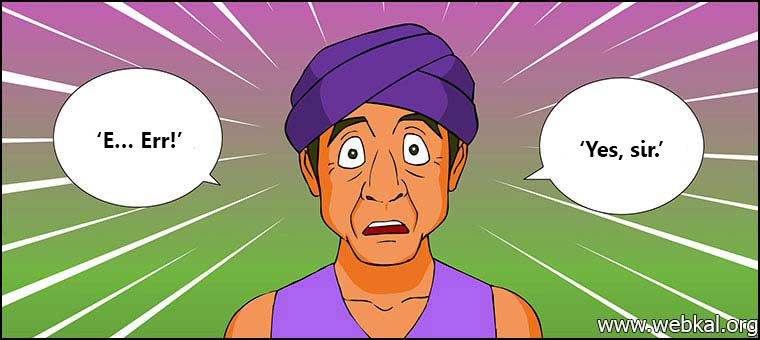
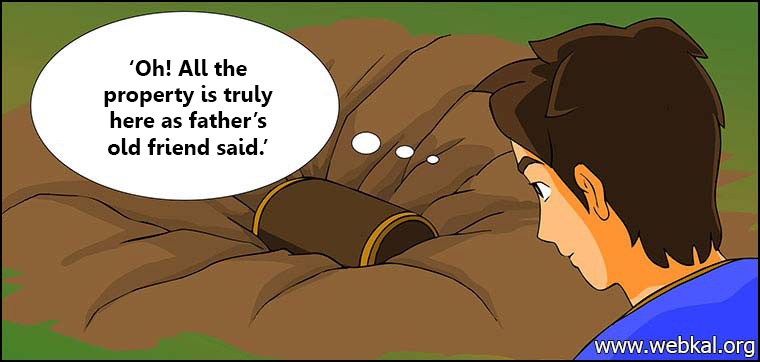
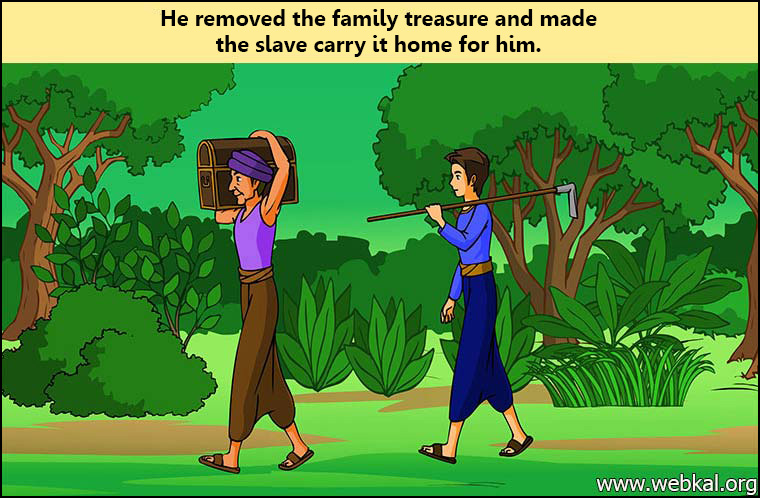
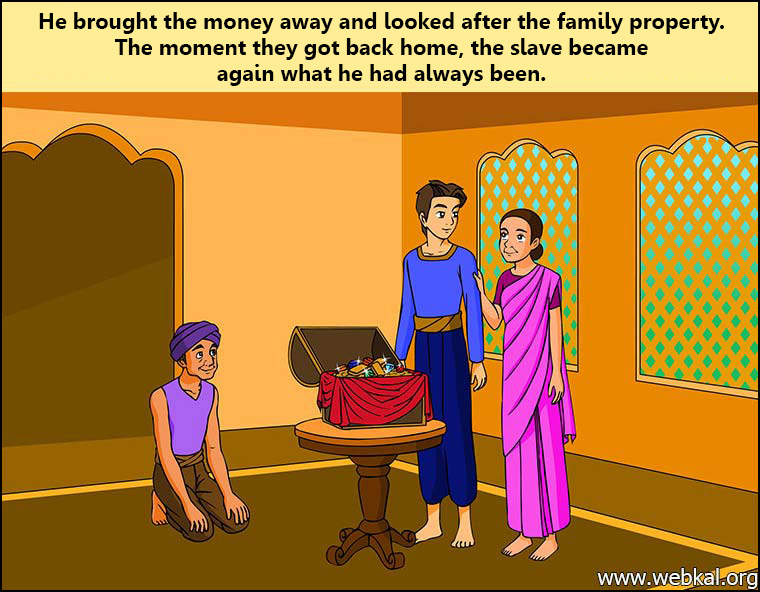
The end.
The Origin of the Story
This story was told by the Lord Buddha while was dwelling at Jetavana monastery, about a co-resident pupil of Venerable Sariputta.
Tradition says that this Bhikkhu was meek and docile and was zealous in ministering to Venerable Sariputta. Now, on one occasion the Venerable departed with the leave of the Buddha, on an alms pilgrimage and came to South Magadha. When he got there, that Bhikkhu grew so proud-stomached that he would not do what the Elder told him. Moreover, if he was addressed with, ‘Sir, do this,’ he quarreled with the Elder. Venerable Sariputta could not make out what possessed him.
After making his pilgrimage in those parts, he came back again to Jetavana monastery. The moment he got back to the monastery, the Bhikkhu became again what he had always been.
The Venerable told this to the Lord Buddha, saying, ‘Sir, a co-resident of mine is in one place like a slave bought for a hundred pieces and in another so proud-stomached that an order to do anything makes him quarrel.’
Said the Buddha, ‘This is not the first time, Sariputta, that he has shown this disposition; in the past too, if he went to one place, he was like a slave bought for a hundred pieces, whilst, if he went to another place, he would become quarrelsome and contentious.’ And, so saying, by request of the Elder, he told this story of the past.
The story of Jātaka
Once on a time when King Brahmadatta was reigning in Benares, the Bodhisatta came to life again as a squire. Another squire, a friend of his, was an old man, but had a young wife who had borne him a son and heir. Said the old man to himself, ‘As soon as I am dead, this girl, being so young as she is, will marry heaven knows whom and spend all my money, instead of handing it over to my son. Wouldn’t it be my best course to bury my money safely in the ground?’
So, in the company of a household slave of his named Nanda, he went to the forest and buried his riches at a certain spot, saying to the slave, ‘My good Nanda, reveal this treasure to my son after I am gone, and don’t let the wood be sold.’
After giving this injunction to his slave, the old man died. In due course the son grew up and his mother said to him, ‘My son, your father, in the company of Nanda, buried his money. Get it back and look after the property of the family.’ So one day he said to Nanda, ‘Uncle, is there any treasure which my father buried?’ ‘Yes, my lord.’ ‘Where is it buried?’ ‘In the forest, my lord.’ ‘Well, then, let us go there.’ And he took a spade and a basket and going to the scene, said to Nanda, ‘Well, Uncle, where’s the money?’
But by the time Nanda had got up to the treasure and was standing right over it, he was so puffed up by the money that he abused his master, saying, ‘You servant of a slave wench’s son! How should you have any money here?’ The young gentleman, pretending not to have heard this insolence, simply said, ‘Let us be going then,’ and took the slave back home with him.
Two or three days later, seeing the slave was in the good mood, they returned to the place but again Nanda abused him as before. Without any abusive rejoinder, the young gentleman came back and turned the matter over in his mind. Thought he to himself, ‘At starting, this slave always means to reveal where the money is but no sooner does he get there than he falls to abuse me. The reason of this I do not see but I could find out if I were to ask my father’s old friend, the squire.’ So he went to the Bodhisatta and laying the whole business before him, asked his friend what was the real reason of such behavior.
Said the Bodhisatta, ‘The spot at which Nanda stands to abuse you, nephew, is the place where your father’s money is buried. Therefore, as soon as he starts abusing you again, say to him, ‘Whom are you talking to, you slave?’ Pull him from his perch, take the spade, dig down, remove your family treasure and make the slave carry it home for you.’
Taking a respectful leave of the Bodhisatta, the young gentleman went home and taking Nanda went to the spot where the money was buried. Faithfully following the advice he had received, he brought the money away and looked after the family property. He remained steadfast in the Bodhisatta’s counsels and after a life spent in charity and other good works he passed away to fare according to his deserts.
The revealing of the identities
Said the Lord Buddha, ‘In the past too this man was similarly disposed.’ His lesson ended, he showed the connection and identified the birth, by saying, ‘Sariputta’s co-resident was the Nanda of those days, and I, the wise and good squire.’
What are learned from the story:
1. The old saying old man marries a young wife, the marriage is suffering as the physical agility is different and the treasure is left behind by the time he’s gone is a sort of worry.
2. People can be proud-stomached when rise to fame and position, they start speaking insulting words and having a condescending attitude.
The End